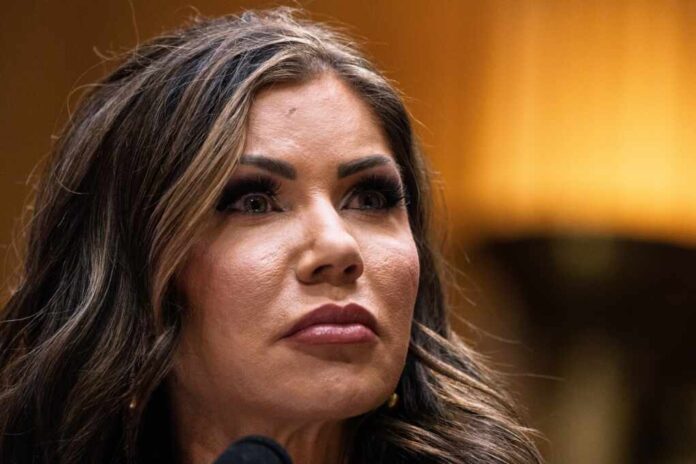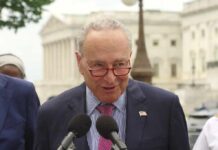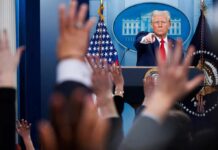
The Trump administration has terminated the controversial ‘Quiet Skies’ surveillance program amid allegations it was weaponized by the Biden administration to target political opponents while failing to prevent any terrorist attacks.
At a Glance
- Homeland Security Secretary Kristi Noem announced the end of the TSA’s $200 million annual ‘Quiet Skies’ counterterrorism program
- Noem alleged the program was misused to target conservatives and benefit Biden administration allies
- The program allowed federal marshals to surveil U.S. citizens who had contact with “known or suspected terrorists” even if they weren’t on watchlists
- A 2020 DHS inspector general report previously criticized the program for lacking proper oversight
- President Trump has separately ordered an investigation into former President Biden’s use of autopen signatures
Program Termination and Allegations of Misuse
Department of Homeland Security Secretary Kristi Noem has announced the termination of the Transportation Security Administration’s “Quiet Skies” program, a counterterrorism initiative that permitted surveillance of certain air travelers. The program, which cost taxpayers approximately $200 million per year, allowed federal air marshals to follow U.S. citizens on flights if they had contact with individuals deemed “known or suspected terrorists,” even when those citizens weren’t on terrorism watch lists or suspected of crimes themselves.
According to Noem, the program failed to achieve its stated national security objectives while potentially being misused for political purposes. “The program, under the guise of ‘national security,’ was used to target political opponents and benefit political allies of the Biden Administration,” she stated, referencing what she described as “documents, correspondence, and timelines that clearly highlight the inconsistent application of Quiet Skies.”
Whistleblower Revelations and Oversight Concerns
The decision to end the program follows reports of whistleblowers coming forward in 2024 with allegations that the program was being misused against political figures. Former Democratic presidential candidate Tulsi Gabbard was reportedly among those subjected to surveillance under the program. Critics have pointed to a troubling pattern of selective application, with claims that scrutiny was removed for certain individuals connected to administration allies, such as Senator Jeanne Shaheen’s husband.
A 2020 Department of Homeland Security inspector general report had previously criticized the Quiet Skies program for lacking adequate oversight and responsible data management. Individuals flagged under the program were not informed of their status and had no hearing process to challenge surveillance decisions, raising serious due process concerns among civil liberties advocates.
Broader Investigation into Biden Administration
The termination of Quiet Skies comes as President Trump has ordered a separate investigation into former President Biden and his aides regarding the use of an autopen for official signatures. Trump has characterized this as potentially one of the “most dangerous” scandals in American history, suggesting it may have been used to conceal what he describes as Biden’s “serious cognitive decline” during his presidency.
The memorandum addressing these concerns was sent to both the Attorney General and the Counsel for the President. The dual investigations reflect the Trump administration’s broader efforts to examine potential overreach and abuse of power during the previous administration, particularly regarding surveillance authorities and executive functions.
Future Security Measures
While ending the Quiet Skies program, Secretary Noem has emphasized that the TSA will continue its essential security functions through other means. The department plans to implement REAL ID requirements to enhance travel security while phasing out what it considers ineffective and potentially abused surveillance programs. Noem has also called for a Congressional investigation into the alleged misuse of the program, suggesting that further accountability measures may be forthcoming.
The elimination of Quiet Skies represents a significant shift in counterterrorism approach under the Trump administration, prioritizing concerns about political targeting and civil liberties over programs initiated after the September 11 attacks. Aviation security experts will be watching closely to see what alternative measures might replace the terminated program in the coming months.

























